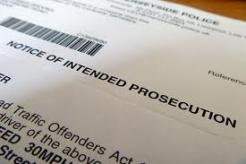
Helen Newman of Forrest Williams
What is Exceptional Hardship?
If you reach 12 or more points on your licence within a 3 year period then you will be called to court with the expected outcome that the court will disqualify you from driving for 6 months – the only way to avoid this is to argue what is called “Exceptional Hardship”.
If you put the phrase into a search engine you will be met with a list of firms offering to help you make this application but none of them actually tell you what it is exactly and none give you a checklist. You might think this is because they don’t want you to do it yourself, they want you to need their help so they keep some information back.
I can promise you that Forrest Williams will not do this. We will tell you there is no checklist, there is no magic formula.
But we will also tell you that you do need help with this. With an exceptional hardship application you are pleading Guilty to an offence but then you are asking the courts not to punish you in the way the law says you should be. You are asking them to find that your circumstances are so special that you should be considered the ‘exception’ to the rule. This is not something that a lot of people can do on their own.
For a lot of people they contact us because the loss of their licence will mean the loss of their job, the loss of income. The law says this is not enough, there needs to be some other consequence. After all, as harsh as it sounds, the court are looking to punish you for the offence that has called you before them.
However we will not tell you that you should consider making an exceptional hardship application unless we believe that there is a strong chance of success. We know that it is a big expense at a time when for most, every penny matters.
I recently had an unsuccessful Exceptional Hardship Application heard in Bromley Magistrates. My client, a delivery driver, was in a totting position which in turn would mean he would lose his job. He had a child with his ex however advised me that he would not allow me to use this information as part of his case, so despite actually providing them with vital support, he did not want the courts to know he provided financially. He was aware that not allowing us to tell the courts about the support he provided substantially weakened his case. He lived with his parents but they did not rely on his income. His parents were elderly but drove and were not reliant upon his licence. He told us that he could not return to his previous employment as a welder because of health concerns, concerns which had prompted him to take a job as a delivery driver in the first place. The courts found that though he himself would suffer hardship his case did not meet the high threshold set for an Exceptional Hardship application.
Our client lost his case but he was happy with the service he has received. He knew that we had tried to explore every option and that he was kept informed throughout his case. He needed to try to save his licence and we worked with him to build the strongest case we could using the information he was happy for us to share.
If you are in a position where you are facing a disqualification, whether as a Totter, for a high speed, for medical reasons or for a Drink Drive offence then give the Forrest Williams Team a call on 01623 397200 and we would be happy to have a chat about your circumstances and see what would work best for you.


